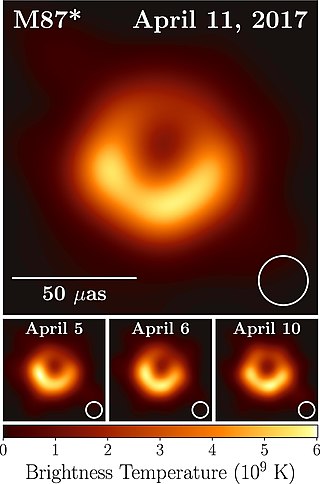
Nicolaas Bloembergen was a Dutch-American physicist and Nobel laureate, recognized for his work in developing driving principles behind nonlinear optics for laser spectroscopy. During his career, he was a professor at Harvard University and later at the University of Arizona and at Leiden University in 1973.

David Jonathan Gross is an American theoretical physicist and string theorist. Along with Frank Wilczek and David Politzer, he was awarded the 2004 Nobel Prize in Physics for their discovery of asymptotic freedom. Gross is the Chancellor's Chair Professor of Theoretical Physics at the Kavli Institute for Theoretical Physics (KITP) of the University of California, Santa Barbara (UCSB), and was formerly the KITP director and holder of their Frederick W. Gluck Chair in Theoretical Physics. He is also a faculty member in the UCSB Physics Department and is currently affiliated with the Institute for Quantum Studies at Chapman University in California. He is a foreign member of the Chinese Academy of Sciences.
Michael Ellis Fisher was an English physicist, as well as chemist and mathematician, known for his many seminal contributions to statistical physics, including but not restricted to the theory of phase transitions and critical phenomena. He was the Horace White Professor of Chemistry, Physics, and Mathematics at Cornell University. Later he moved to the University of Maryland College of Computer, Mathematical, and Natural Sciences, where he was University System of Maryland Regents Professor, a Distinguished University Professor and Distinguished Scholar-Teacher.

William Esco Moerner, also known as W. E. Moerner, is an American physical chemist and chemical physicist with current work in the biophysics and imaging of single molecules. He is credited with achieving the first optical detection and spectroscopy of a single molecule in condensed phases, along with his postdoc, Lothar Kador. Optical study of single molecules has subsequently become a widely used single-molecule experiment in chemistry, physics and biology. In 2014, he was awarded the Nobel Prize in Chemistry.
Carl M. Bender is an American applied mathematician and mathematical physicist. He currently holds the Wilfred R. and Ann Lee Konneker Distinguished Professorship of Physics at Washington University in St. Louis. He also has joint positions as professor of physics at the University of Heidelberg and as visiting professor of applied mathematics and mathematical physics at Imperial College, London.

Feryal Özel is a Turkish-American astrophysicist born in Istanbul, Turkey, specializing in the physics of compact objects and high energy astrophysical phenomena. As of 2022, Özel is the Department Chair and a professor at the Georgia Institute of Technology School of Physics in Atlanta. She was previously a professor at the University of Arizona in Tucson, in the Astronomy Department and Steward Observatory.

David R. Nelson is an American physicist, and Arthur K. Solomon Professor of Biophysics, at Harvard University.
Sudhanshu Shekhar Jha is an Indian condensed matter physicist and a former director of Tata Institute of Fundamental Research. Known for his research in optoelectronics, Jha is an elected fellow of all the three major Indian science academies – Indian National Science Academy, National Academy of Sciences, India and Indian Academy of Sciences – as well as of The World Academy of Sciences and American Physical Society. The Council of Scientific and Industrial Research, the apex agency of the Government of India for scientific research, awarded Jha the Shanti Swarup Bhatnagar Prize for Science and Technology, one of the highest Indian science awards, for his contributions to Physical Sciences in 1979.

The University College of Science, Technology and Agriculture are two of five main campuses of the University of Calcutta (CU). The college served as the cradle of Indian Sciences by winning the Nobel Prize in Physics in 1930 and many fellowships of the Royal Society London.






